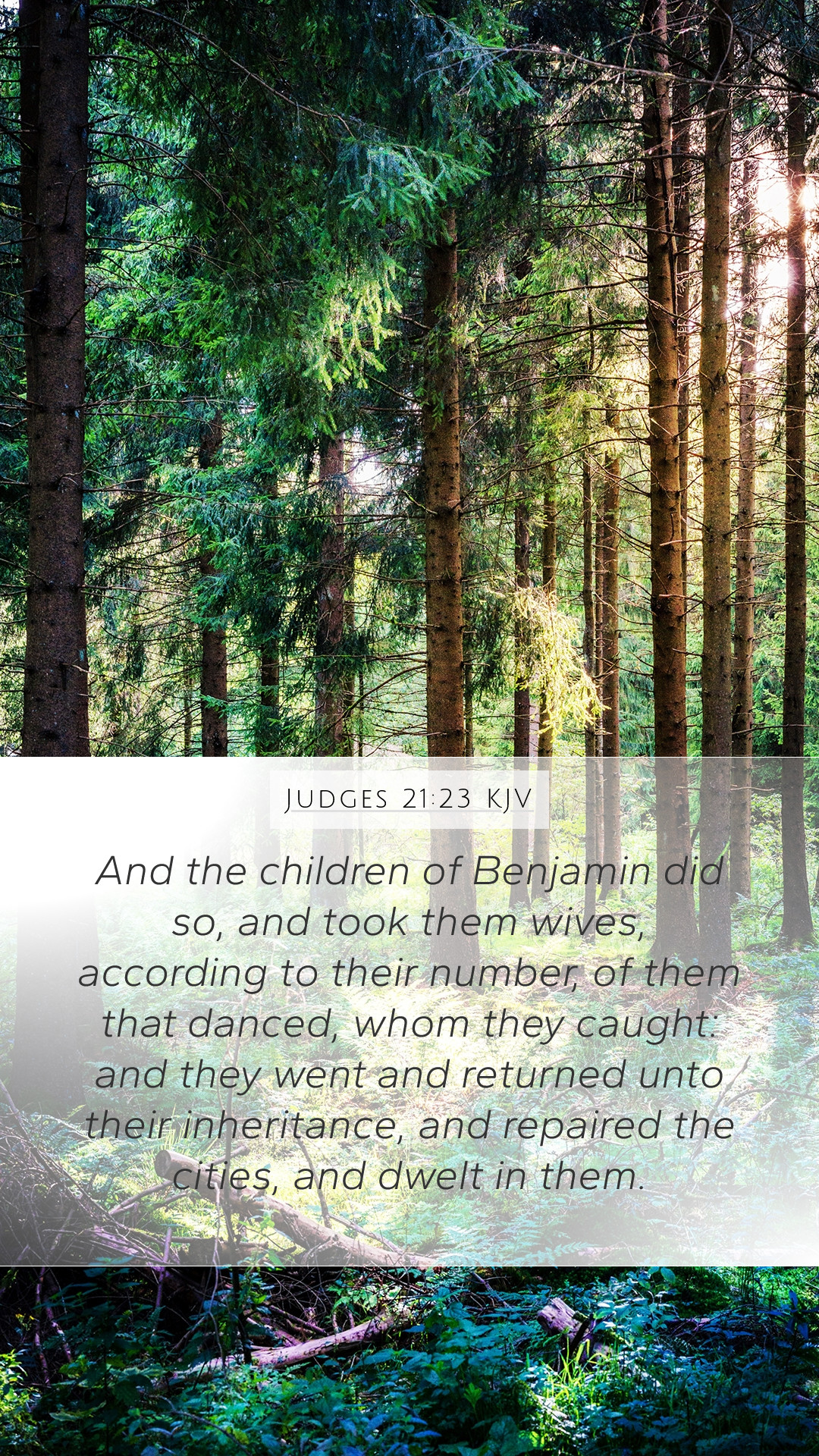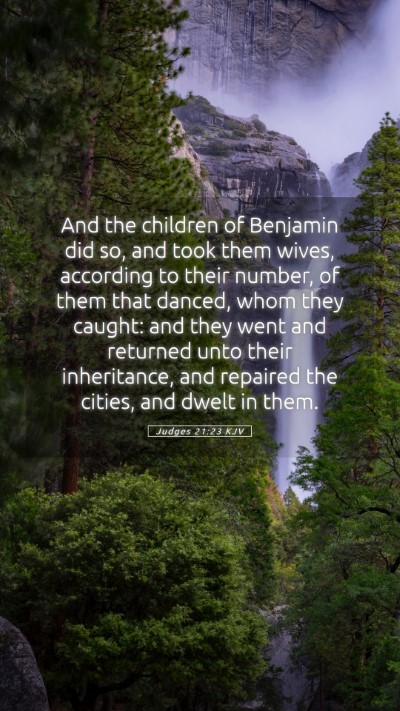Bible Verse Interpretation: Judges 21:23
Judges 21:23 states, "And the children of Benjamin did so, and took them wives, according to their number, of them that danced, whom they caught: and they went and returned unto their inheritance, and repaired the cities, and dwelt in them." This verse encapsulates a series of events that mark a significant moment in the history of Israel, particularly in the context of the tribe of Benjamin and their re-establishment after a civil conflict.
Understanding the Context
This passage occurs after the Israelite tribes have gone through a tumultuous period, marked by civil war and the near extermination of the tribe of Benjamin. The previous chapters narrate the events that led to this drastic situation, including the crime at Gibeah and the subsequent actions taken by the other tribes of Israel.
Key Message in Judges 21:23
One primary focus is on restoration and the means by which the tribe of Benjamin finds wives to rebuild their population. This action raises questions about the ethical dimensions of their decisions, presenting a complex interplay of survival, law, and community.
Commentary Insights
-
Matthew Henry's Commentary:
Matthew Henry emphasizes the need for restoration following the judgment that fell upon the tribe of Benjamin. He notes that in their desperate situation, the tribe resorted to unconventional means to ensure their survival. Henry points out the implications of such actions on the morality of the Israelites, suggesting a move away from divine law due to their circumstances.
-
Albert Barnes' Commentary:
According to Albert Barnes, this verse illustrates God's providence even in the midst of Israel's difficulties. He interprets the act of taking the daughters of Shiloh as a sign of the tribe's resilience and their commitment to restoring themselves. Barnes highlights that these actions, while appearing desperate, ultimately reflect God's mercy towards the tribe of Benjamin.
-
Adam Clarke's Commentary:
Adam Clarke provides a detailed analysis of the customs surrounding marriage in ancient Israel. He discusses the cultural implications of the women being abducted for marriage, pointing out that while this method is certainly troubling, it also showcases the lengths to which the Israelites would go to preserve their familial and tribal identities.
Biblical Exegesis
The exegesis of Judges 21:23 requires understanding the historical context of the Israelites and how they navigated their identity crises after significant internal conflict. The verse speaks not only to the acts of the people but also to the overarching themes of mercy, survival, and the complexities of human decisions in the face of dire circumstances.
Application to Daily Life
The challenges faced by the Israelites in this passage resonate with contemporary readers who encounter seasons of conflict and need for reconciliation. The lessons drawn from Judges 21:23 encourage individuals to reflect on the means of restoration in their own lives while considering the ethical implications of their actions.
Cross References
- Judges 21:1-3: This passage sets the stage for the desperation of the Israelites following the war against Benjamin.
- Deuteronomy 20:10-14: This passage discusses the laws concerning war and the taking of captives, which provides context to the actions taken in Judges.
- Exodus 34:24: This verse connects to the promises made by God and highlights His faithfulness even in the face of human sin.
Conclusion
Judges 21:23 is a verse that encapsulates both the struggle and resilience of the Israelite community. Through careful scrutiny and commentary, we see the intricate dance between divine providence, human action, and moral dilemmas. For any individual or group seeking to deepen their Bible verse understanding and engage in Bible study insights, exploring the depth of this passage offers profound lessons applicable to today's struggles and decisions.


